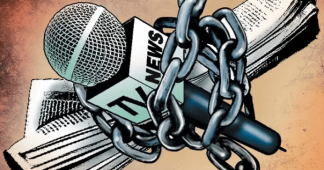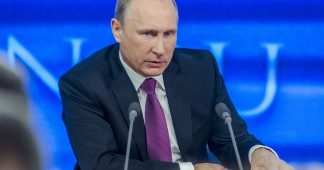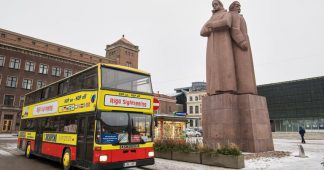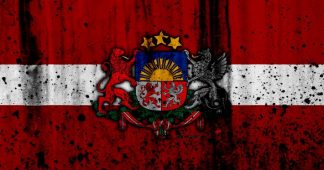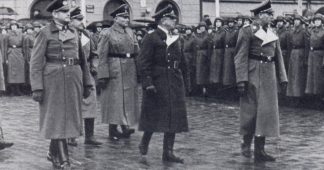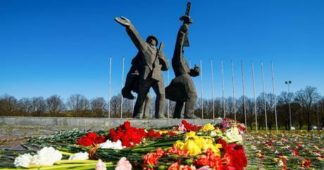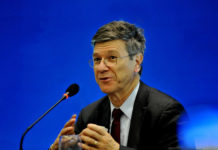By Oksana Chelysheva
The ongoing war in Ukraine is fraught with a broad range of imminent consequences. With its end still not being in sight, it has affected various spheres of life in different countries, Ukraine and Russia, first and foremost. Both economically and politically. At that, its hybrid character influences domestic policies of other countries too.
While the capital of Latvia, Riga, has become for the time being some kind of safe heaven for exiled Russian journalists and their media outlets, local Russian-speaking journalists have been treated as ”foreign agents” or ”Kremlin fifth column” which is the reverse image of what is going on in Russia.
Especially after February 24, 2022, the number of cases initiated against people who dare to express some slight dissent from the mainstream interpretation of the conflict over Ukraine and its causes has increased. As of June 22, according to the official statement by the VDD, Latvia’s Security police, they have opened a total of 19 criminal cases with 4 more cases been transferred to them from the State Police in connection with aggressive statements.
On June 21 the Security Police of Latvia detained Vladimir Linderman, a publicist and one of the leading activists of the movement to defend the rights of the Russian-speaking Latvians. Being in his past closely connected with Eduard Limonov’s party, Linderman currently has no affiliation with any political group. Neither has he a possibility to contribute to the Russian-language media outlets in Latvia.
Latvian media referring to the Security services tells that Vladimir Linderman ”was detained for systematically glorifying and justifying on the Internet the war crimes of the Russian armed forces against Ukrainians and the Ukrainian state”. According to his lawyer Jelena Kvjatkovskaya quoted by press.lv portal, her client states that ”all accusations are vague and incomprehensible which deprives him of the right to full protection”. On July 14 it became known that Vladimir Linderman was banned from communication to anyone except his lawyers. He has also been deprived of the right to send and receive letters. The same day the court prolonged his prison custody as a remand measure.
In April 2022 the Safety of Journalists Platform at the Council of Europe issued an alert ”Pressure on Editorial and Financial Independence of Latvian Television” referring to the remark made by Latvia’s Minister of Defence, Artis Pabriks, who warned the TV-channel that “appropriate funding for the public broadcaster would be made conditional on “right” and “wrong” editorial choices. It happened after the TV-channel interviewed the Russian journalist Leonid Rogozin who is well-known for his coverage of the far-right movement both in Russia and Ukraine. The Council of Europe Platform indicated in their alert that such reaction from a member of the government “could undermine the institutional autonomy of public service media and put public trust in TVR at risk”.
According to several people based in Riga who I communicated to on conditions on anonimity, the political persecutions were intensified after the events of May 9, which is traditionally revered as the Victory Day in the WWII.
That day in Riga people used to hold commemoration ceremonies at the Monument to the Liberators of Riga and Latvia from the German Fascist Invaders. This year the access to the monument was restricted but, nevertheless, people brought flowers. In the early morning next day the Riga city authorities sent a tractor and all the flowers were destroyed and the square was cleansed.
People I talked to explain that this act of pure disrespect from the authorities led to spontaneous protest which was absolutely peaceful. By the evening of May 10th, the entire square was again covered with flowers. People tell that everybody stayed calm and peaceful despite a few provocateurs.
Nevertheless, the police detained a young man, Alexander Dubjago by name, who brought a banner of Russia to the monument on May10th. Alexander Dubjago spent more than a month in a remand prison but was released in the middle of June. The case against him is still open. Alexander Dubjago is charged under the same article 74.1 of the Criminal Code of Latvia as Vladimir Linderman.
Moreover, soon after the events of May 9 and 10, the Riga City Council decided to demolish the biggest memorial monument to the liberators of Riga and Latvia from Nazi occupation. The peaceful protest action against this decision initiated by the ”Latvian Russian Union” political party was forbidden, and three organisers, including the MEP Tatjana Zdanoka, were detained by the police.
In her speech addressed to the EP, Tatjana Zdanoka later told, ”The Latvian authorities, in their decisions, hide behind the events in Ukraine, while in Kyiv itself, on the day of 9 May, an official ceremony was held at the Eternal Flame in memory of those killed during World War II. In Riga thousands of residents brought flowers to our monument on 9 May, but the city authorities defiantly destroyed the flower carpet by tractor on the same night. It is unacceptable”.
In the middle of March Latvian blogger Kyryll Fyodorov was detained. The Latvian LSM agency wrote then referring to the VSD of Latvia that Fyodorov in his video materials regularly reflected the events developing in Ukraine from the point of view favourable for Russia. Earlier in March Aivis Vasilevskis was arrested on suspicion of ”justifying the military crimes by Russia in Ukraine”. The same LSM agency stated that Aivis Vasilevskis is one out of four members of the DVS Urantija mental development centre who are facing the same charges, including his father, a healer Ventis Vasilevskis.
On July 13, 2022 Miroslavs Mitrofanovs, co-chair of the Latvian Russian Union, submitted the petition ”On rough infringement by Latvian authorities the Council Framework Decision 2008/913/JHA of 28 November 2008 on combating certain forms and expressions of racism” bearing 10 200 signatures. The signatories are turning to the European Parliament and the European Commission “to influence authorities of Republic of Latvia to stop the full-scale campaign aiming for dehumanization, suppression and marginalization of Russian-speaking residents of Latvia”. They claim that “Appeals to the police and state security agencies regarding the use of hate speech and calls for violence against the Russian-speaking residents of Latvia do not bring results”.
The petitioners are concerned with the fact that “the Government has prepared a package of initiatives to destroy memorials dedicated to the soldiers of the Soviet army who liberated Latvia from Nazi occupation during World War II. About 150 thousand Soviet soldiers died in the battles for the liberation of Latvia. In almost every family of Russian-speaking Latvians and in many Latvian families, the memory of the victims of the war and the ancestors who fought on the side of the Anti-Hitler coalition is preserved”.
Nevertheless, on June 16 Latvia’s Parliament passed the law that provides for demolishing. Although the title of the Law is “On the prohibition of exposing objects glorifying the Soviet and Nazi regimes and the dismantling thereof in the territory of the Republic of Latvia”, the only monument specially mentioned in the Law as the one to be dismantled is the Monument to the Liberators of Soviet Latvia and Riga from the German Fascist Invaders. The special Committee of experts has already prepared the list of 69 monuments, memorial plaques and memorial sites in the territory of Latvia to be demolished. No one of them is connected to the Nazi regime, although the number of monuments glorifying the soldiers of Latvian SS legion were established recently.
We remind our readers that publication of articles on our site does not mean that we agree with what is written. Our policy is to publish anything which we consider of interest, so as to assist our readers in forming their opinions. Sometimes we even publish articles with which we totally disagree, since we believe it is important for our readers to be informed on as wide a spectrum of views as possible.
